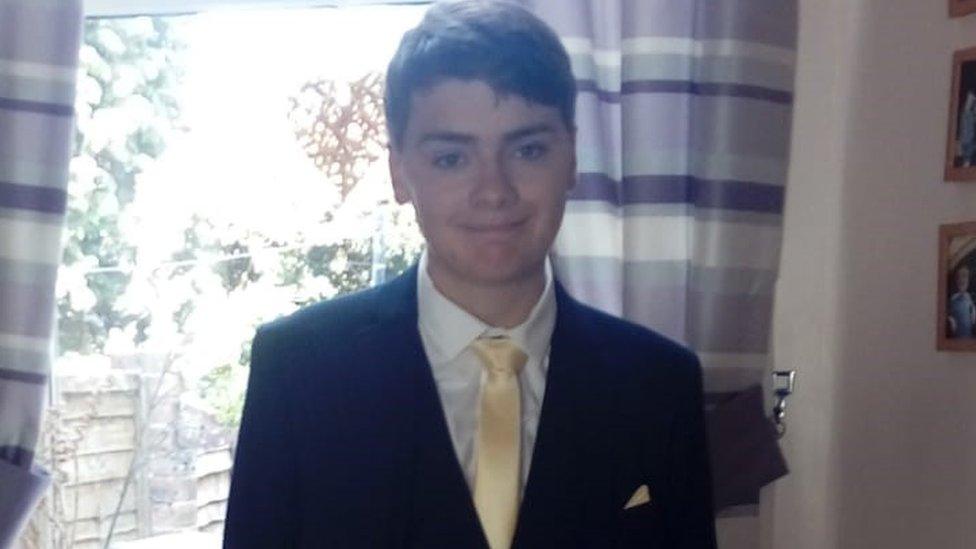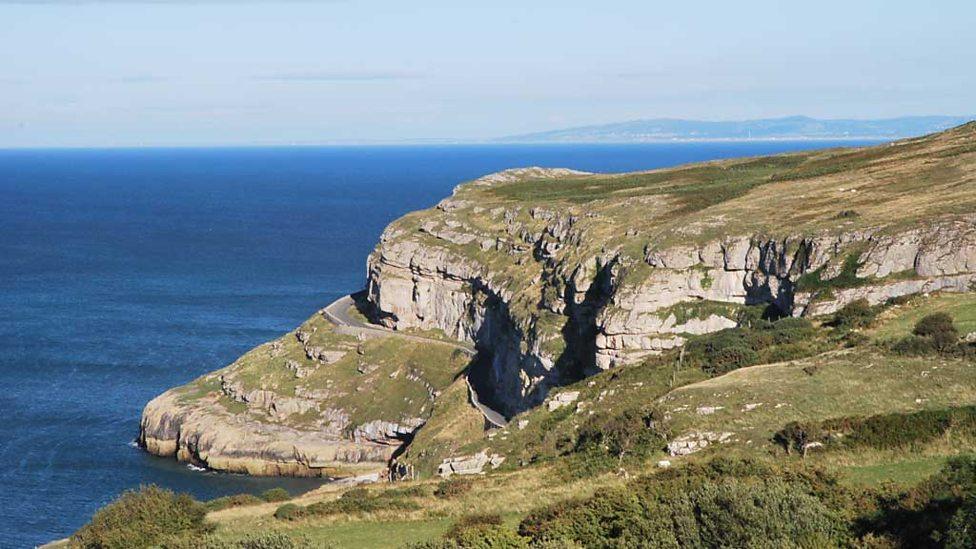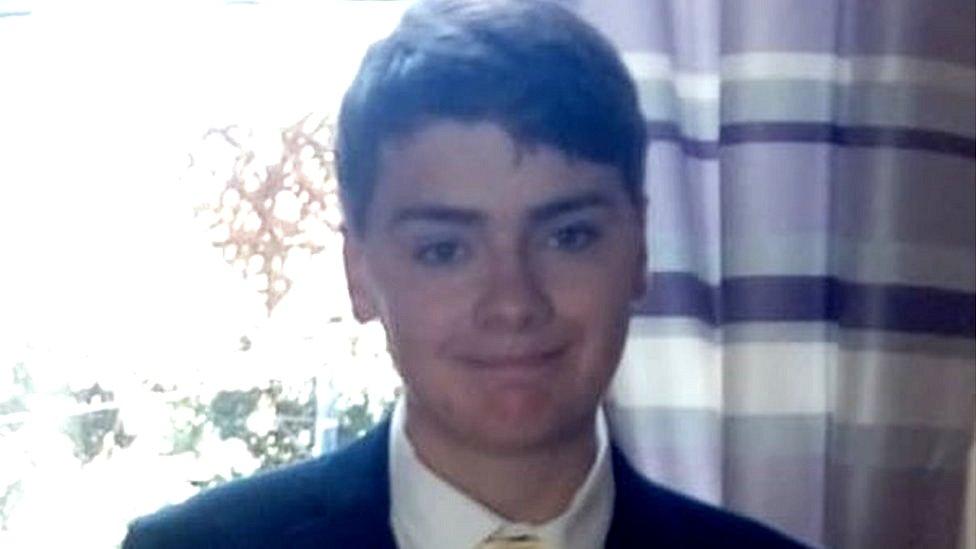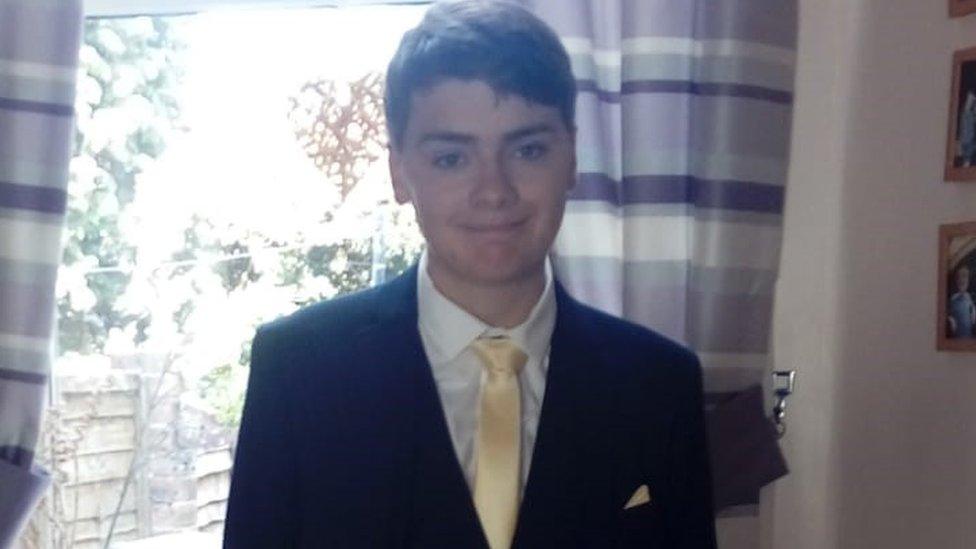Scout could have been saved by basic instructions, inquest hears
- Published

Ben Leonard was on an Explorer Scouts trip when he fell to his death
A teenager's life could have been saved if he had been given "basic" instructions by scout leaders, an inquest has heard.
Ben Leonard, 16, from Stockport, Greater Manchester, fell about 200ft (61m) while hiking on the Great Orme in Llandudno, Conwy county, during an Explorer Scouts trip in August 2018.
He and two friends became separated from the group and took another route, when Ben slipped off a rocky ledge.
He died from a head injury.
Scout leaders previously told the inquest they accepted responsibility for Ben's death.
Gareth Williams was the first of the three leaders on the trip to give evidence at the inquest in Manchester, which is now in its fourth week.
Mr Williams, aged 26 at the time and an assistant scout leader, told the hearing it was his first trip in such a role.
He added he had never met Ben before and was asked to go along on the Reddish Explorer Scout's trip because he was "basically another car to use as transport".
Asked if any instructions or guidance were given or parameters set before the walk, Mr Williams replied, "Not that I can recall," adding he did not remember "having any concerns at all about the terrain".
While on the walk he received a call from another scout leader named Mary Carr, who was ahead of him, asking if he could see Ben and his two friends.
"I told her 'no, I thought they'd be with you'," said Mr Williams.

Ben and two friends took an alternative path during an outing to the Great Orme
He then called Sean Glaister, the most senior scout leader on the trip, who then called one of the boys' mobiles, but they did not pick up and a voicemail was left.
"But he didn't seem concerned - it was just [a case of] 'OK, better see where they are up to'," said Mr Williams.
Later, the group made its way back down the Orme and headed to a music tent on the promenade, which was the agreed meeting point.
It was then Mr Glaister received a phone call, Mr Williams said.
"He turned around and said 'you're joking'," he added.
"I remember hearing sirens but can't recall if Sean said, 'Ben's fallen' or 'Ben's had an accident' - after that it just got quite panicked."
Mr Williams added he had "reflected on this for five years".
"If I thought there was any chance they would end up anywhere near cliffs or on cliffs, I would have made sure to tell them not to," he said.
"I didn't think supervision would be a problem and if I could go back to give guidance I would, 100%."
Mr Williams was shown Scout Association safety guidance by the lawyer for Ben's family, Bernard Richmond, who asked him if he accepted it stated people should not be exposed to risks, unless they had been assessed beforehand.
"That's not my understanding… most of scouting couldn't take place," said Mr Williams.
He added, as Explorers, making decisions about risk was a "a necessary part of taking part at that level".
He agreed there had been "obvious hazards" on the Orme, but said he felt they were "self-evident".
"They plainly were not, were they?" asked Mr Richmond.
"No," said Mr Williams, who admitted he thought Ben would have survived if someone had told him to avoid the hazardous area.
He agreed he had been "let down" by his Scout Association training, and that he was a "product of the training of the scouts in safety".
Mr Richmond told Mr Williams he was a "good bloke trying to do your best".
"The family want you to know that," he said.
The inquest continues.
- Published5 January 2024

- Published9 January 2024
